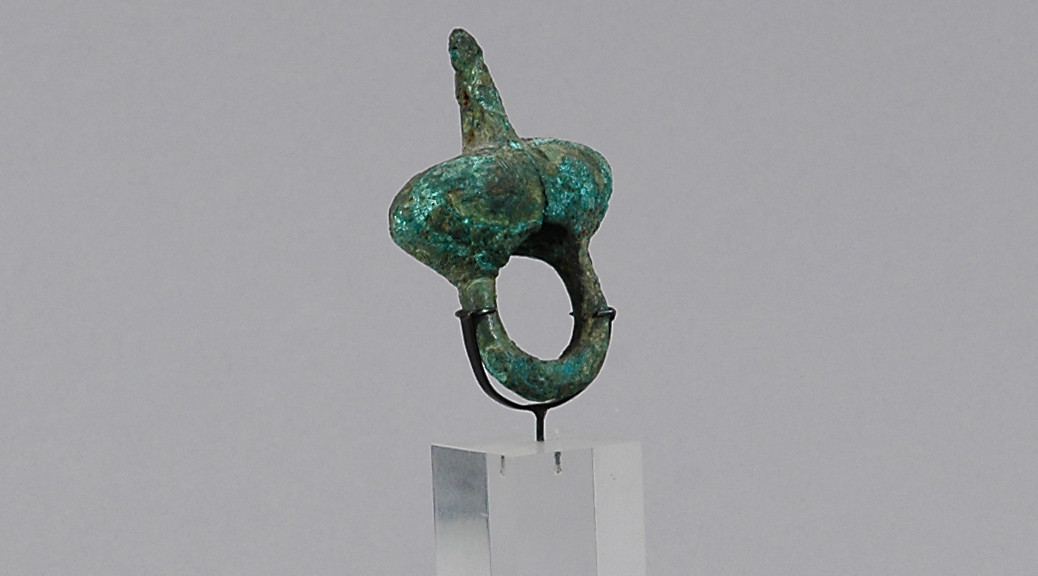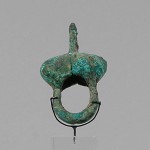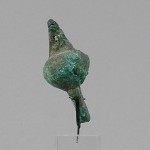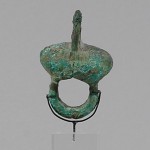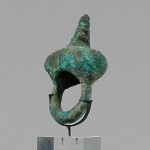KSJK 0809-5
Djenne Bronze Ring, Mali
H: 8 cm (3,1″)
This Djenne Bronze Ring was made by the Djenne people in Mali, and is most likely a funerary piece, buried with its owner, and as you can see from its appearance it was dug from the ground and retains its archeological patina.
The old town of Djenné, Jenne-Jeno, was founded around 800 on an island in the inland Niger Delta of Mali (Schaedler 1997: 32). Later, it became an important Islamic cultural center as well as a center of trans-Saharan trade, which included goods such as salt, gold and slaves. At the height of its popularity it had a population somewhere around 10,000. Trade relations with countries north of the Sahara resulted in both economic prosperity and an exchange with Islamic cultures that is reflected in some of the artistic imagery of Djenné bronze art. Most of the works discovered on the site of ancient Djenné date between the 12th and 16th centuries; they were found during the annual inundation of the Niger Delta when the water uncovers objects from the overlaying soil. Djenne is often referred to interchangeably as both a city and people; and it is safe to say the Djenné were the first and probably most important of the inland Niger Delta civilizations to be discovered by the west.
Provenance: Danish Private Collection
Age: Est: 14th Century AD to 15th Century AD. Objects from this period are quite rare.
Literature: Imperiled Legacy for African Art by Hilland Cotterraugh 2012
Request price for Djenne Ring